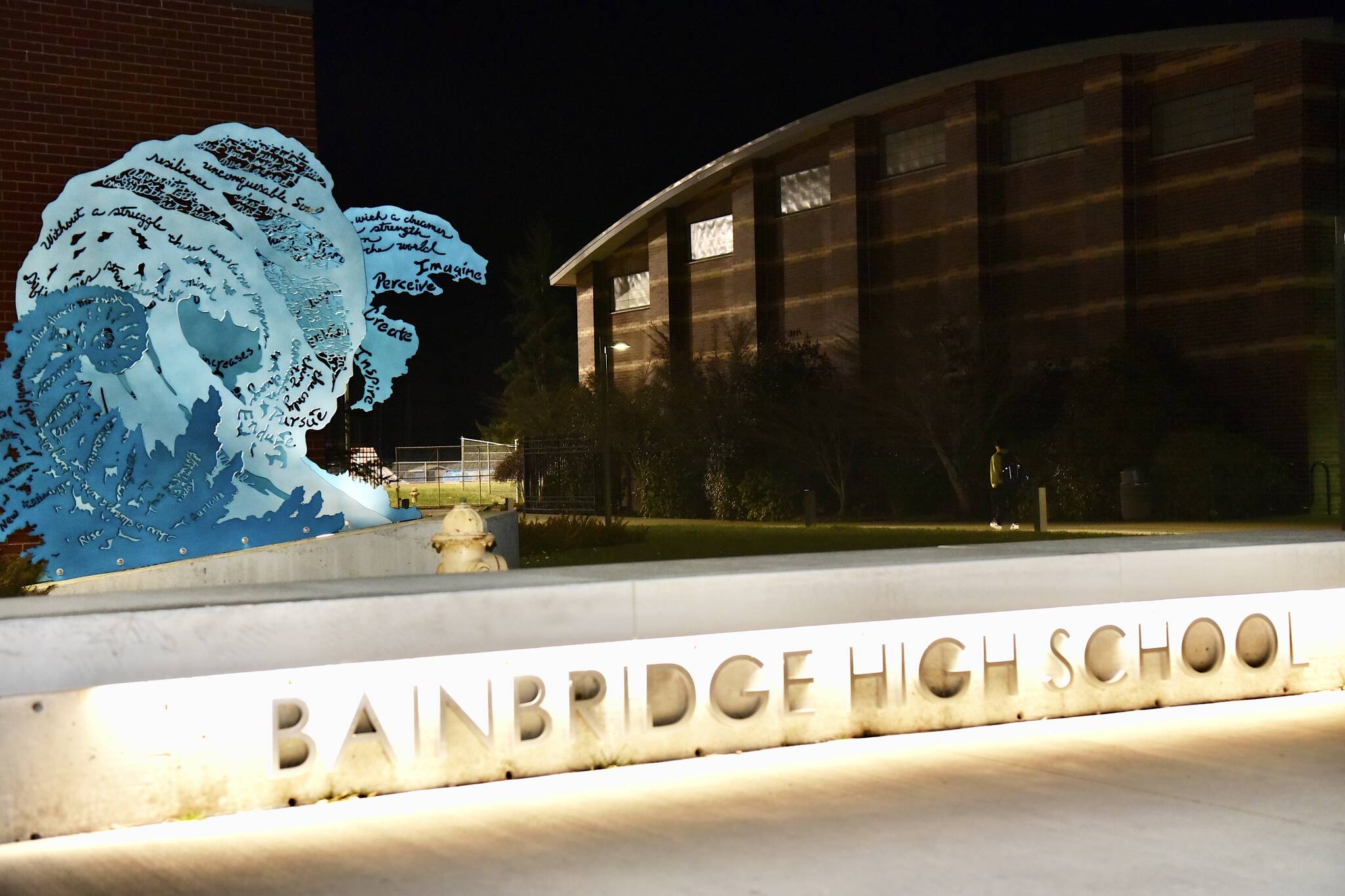Bainbridge High School counselor Cara Tebo likens herself to a matchmaker.
Not the romantic kind. But one who matches students with colleges.
“It’s a very significant transition,” Tebo said. “It’s going to be the place where you learn to become a young adult, find a job, and find the next place in your life.”
As college acceptance letters are anticipated in coming weeks, Bainbridge High School counselors and Career and Technical Department staff hosted a “Beyond BHS” day March 2 to encourage students and their parents to explore what’s after high school.
A Future Fair gave students the opportunity to meet with representatives from various post-high school options ranging from two-year and four-year colleges, apprenticeship programs, local employers, and military pathways.
Parents of sophomores and juniors attended presentations in the evening focused on how to navigate the post-high school process with seminars from private and public colleges, an overview of the college application process, military academies and financial aid guidance.
Tebo shared insights about the college admission process and expressed the importance of finding the right college that matches the student’s social, financial, educational and cultural values.
She said these questions can help to find the right fit: Can you afford it financially? Is this the best level of academic rigor? Will you fit in socially? Is this the best environment with regard to size of student population, campus culture, activities and student services? Does the school offer internships, research opportunities, career services or study-abroad experiences?
Once those questions are answered it’s easier to develop a college list to apply to and start researching. “Campus visits are the best way to find out if it’s a good social fit because you get the vibe and the energy from walking around campus,” Tebow said.
Understanding the difference in values between small liberal arts colleges, and large research universities is important, Tebow said. “Small colleges value teaching, mentoring and relationships. The professors are there to teach students, not to do research.”
Choosing between a large or small college can mean the difference between going to school with a few hundred students or up to 60,000.
Of course, the cost is a big consideration, and all students should fill out the free application for Financial Student Aid regardless of income level because many scholarships require it and, “you never know what might happen in your family. It’s just kind of a safety measure by filling out the FAFSA,” Tebo said.
For students who want to stay close to home, Olympic College offers opportunities for those who aren’t ready to leave or want to save money.
Associate dean Elsa Krier said Olympic College offers two- and four-year degrees, as well as apprenticeship programs in the building trades. “If you’re thinking of going into a trade and becoming an electrician or a plumber, the trade program is a great one to examine. It’s typically an apprenticeship program, where you’re learning on the job.”
Olympic College has a strong relationship with the Puget Sound Naval Shipyard Apprenticeship Program where students can get hired, attend welding classes and receive on-the-job training while the employer pays for school.
“It’s a great program for those who want to go straight into a trade rather than going to college for many years,” Krier said.
Parent Mary Van Eaton said she realized she needs to do more research with her son. “I want to take my kid to just see lots of different colleges starting now. But I don’t want to overwhelm him. He’s a sophomore, so we’ve got two more years.”



